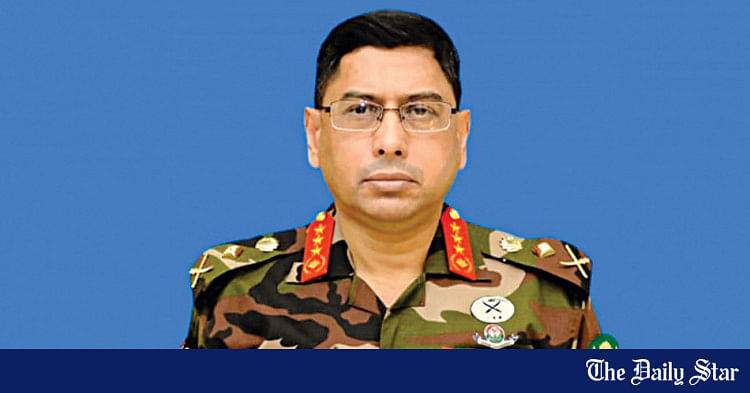Having learnt its lessons from the past, the army resolves to stay out of politics, army chief General Waker-Uz-Zaman has said.
“Meddling in politics is harmful for the army. Such things have happened in the past and we have learned from them.” Gen Waker said in an exclusive interview with the daily Prothom Alo published yesterday.
The army must not interfere in politics, he said.
The four-star general was answering a question hinting that there were apprehensions within the people about the army’s interest in politics and that this had happened before.
The army boss said the army’s interference in politics has never been good for them. “So, it is my pledge that during my tenure as army chief, I will not meddle in politics. I will not let the military interfere in the political affairs.”
He continued saying, “We wholeheartedly believe only politicians can replace politicians. The army can’t be an alternative to politicians.”
When the newspaper pointed out that the army’s Directorate General of Forces Intelligence (DGFI) had interfered in political affairs before, the army chief noted that the DGFI was an autonomous agency, and said the army did not want to do anything of that sort. “We won’t do anything that damages the army’s reputation.”
Gen Waker recalled his experience from the 2007-2008 military-controlled caretaker government, saying the 1/11 event, which had led to the formation of the caretaker administration, was “not so pleasing”.
“Long-term deployment in the field creates the risk of army personnel breaching discipline. Although the number of such incidents is very low, the occurrence of such incidents is embarrassing for us,” he said, adding that the army personnel would happily return to their barracks as soon as the police were ready to resume their duties in earnest.
The army is currently vested with magistracy powers to aid the civil administration, and it is taking steps accordingly, he said.
Asked about the army’s support for the interim government, Gen Waker reiterated the army’s full-fledged cooperation with the incumbent government headed by Nobel Peace Prize winner Prof Muhammad Yunus, saying, “We will assist the chief adviser in whichever manner he seeks our cooperation.”
He said he would not mind aiding the government even if it inconvenienced the military. “We will do it in the interest of the country and nation.”
Regarding a question about the government facing numerous demands from diverse groups, the army chief said he thought people should restrain themselves and not become a burden on the Yunus government. Patience, he said, would make it easier for the incumbents to hold quick elections and pave the way for an elected government.
Regarding the relationship with India, Gen Waker said that the military was very keen to maintain its cordial relations with the big neighbour. He said Bangladesh was dependent on India for a wide range of things, as was India on Bangladesh.
He said it was a relationship of ‘give and take’, and one had to negotiate or bargain for a better share of the pie. “But we should not do anything that makes it seem that India is dominating us in any way that harms our interests.”
The army chief said if Bangladesh takes care of India’s interests, India would duly reciprocate. “Instability will not be created in our Chattogram Hill Tracts. The stability along the Myanmar border will not be disrupted either. They will not kill our people along the borders. We will get our fair share of water.”
He said there was no problem with this relationship of ‘give and take’ but stressed it had to be fair.


